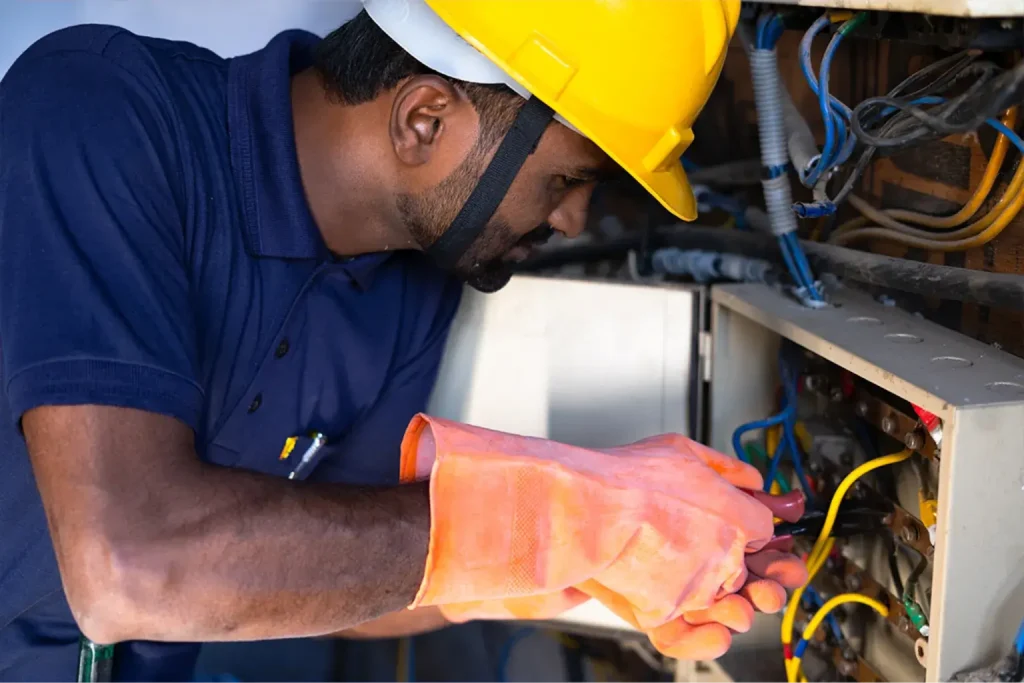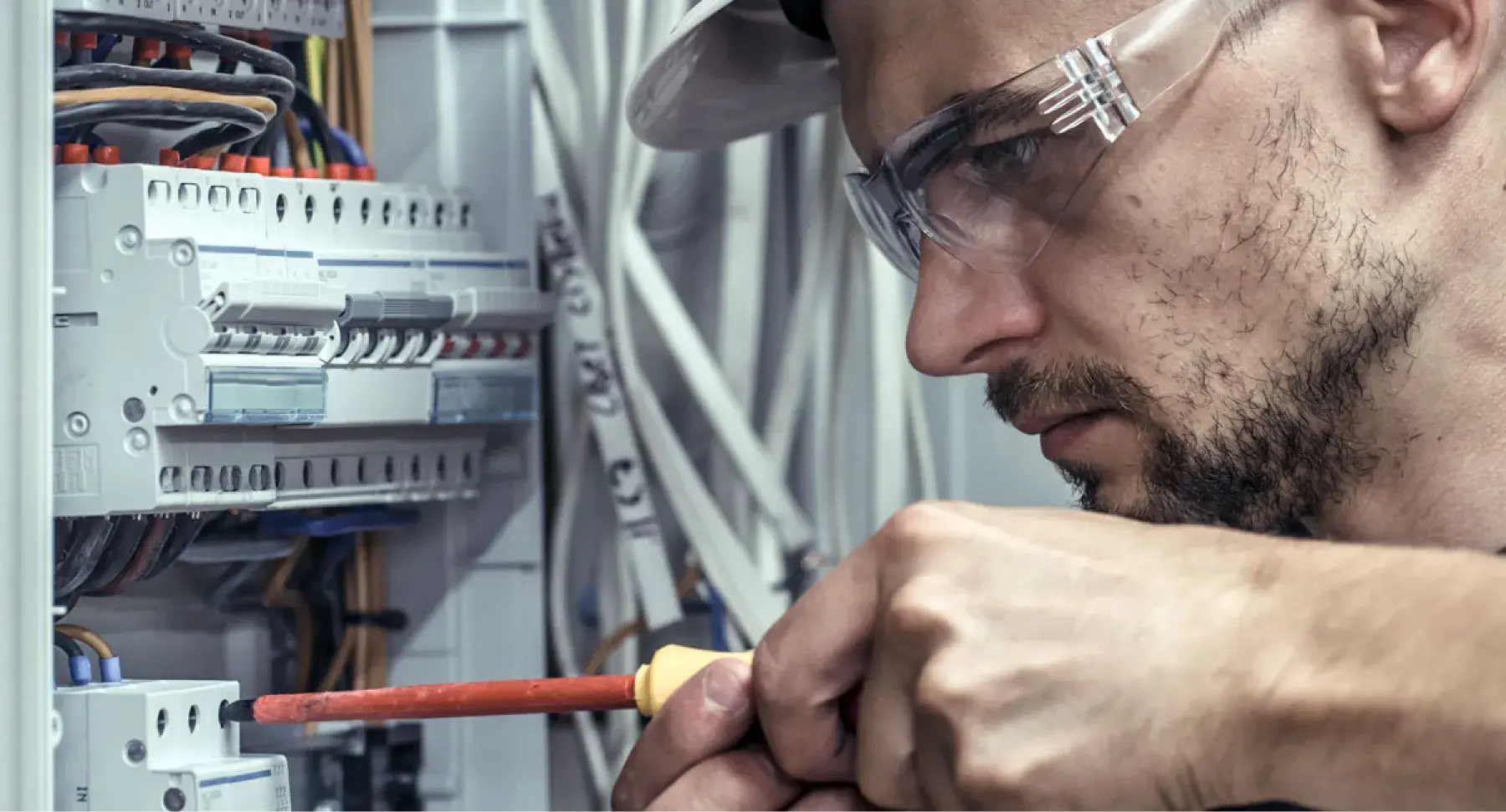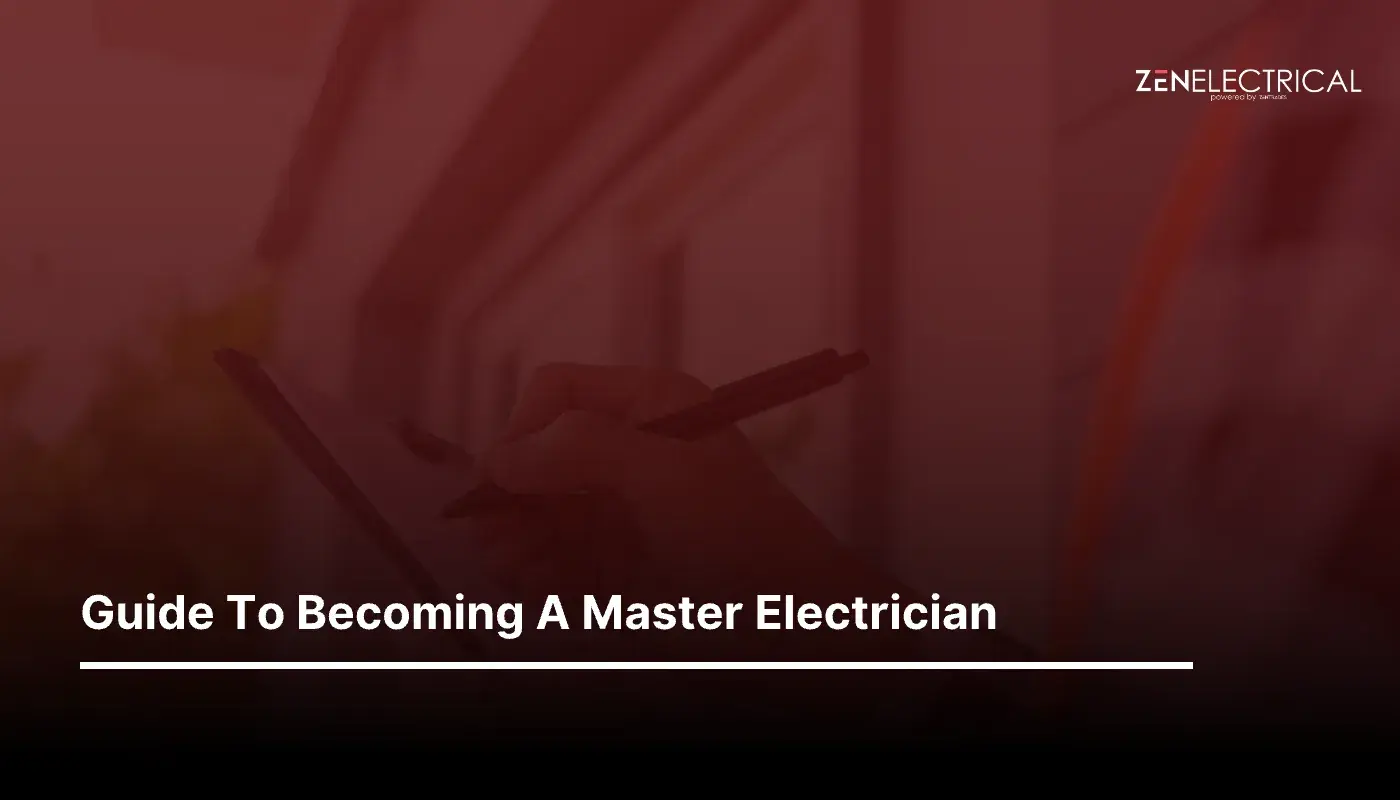How Do I Become A Master Electrician: A Step-By-Step Guide
- ZenElectrical
- 9 Min Read
Becoming a master electrician is rewarding, with lucrative benefits at each step of the way. However, the pathway to it is undoubtedly filled with challenges, which can demotivate you from a successful career. The journey to a master electrician is not easy. You need years of on-the-job training and classroom instruction hours to get through your apprenticeship program, subsequent to which you can work as a journeyman electrician. Your expertise and experience as a journeyman electrician will determine if you’re ready for career advancement and obtain your master electrician license. Moreover, you need to have a valid master electrician license to expand your career options and become a licensed electrical contractor.
The number of electricians employed in the United States is increasing at an unprecedented rate. According to Zippia, the number of working master electricians in the U.S. is currently 327,547, with job opportunities expected to increase in the coming decade. The role of electricians in modern society can be irreplaceable, making it a robust career path for young individuals considering this as their full-time profession.
Aspiring electricians looking for a way to start working as a licensed master electrician, you have come to the right place! In this blog post, we will delve into how you can become a master electrician step-by-step, what the requirements needed to level up to the highest certification level, how to get your master electrician license, and finally, the roles and responsibilities needed to take on once you become a master electrician.

Here What We Cover
What Is A Master Electrician?
A master electrician is the highest level of certification given to electricians who have successfully passed the master electrician licensure examination and have worked considerable hours as journeyman electricians. Master electricians are adept in the electrical trade and complex electrical systems. They are often appointed to supervise junior-level electricians in their training program or electricians with journeyman status.

Use our free estimate template now
Make winning quotes in minutes—for any industry and any job.
Master Electricians: Roles and Responsibilities
Master electricians are usually the experts in their fields, with ample on-field work hours and theoretical knowledge of electrical codes and advanced electrical theory. They are the experienced electricians you reach out to in case of complex electrical projects or perform electrical work requiring extensive knowledge and practical skills.
The general roles and responsibilities of a master electrician include:
Planning and conducting services for electrical installations, repair, and maintenance work
Training apprentice electricians and journeyman electricians under direct supervision
Conducting inspection of electrical systems
Designing electrical systems such as electric light,
Fixing electrical wiring issues and circuit breakers
Proficiency with the National Electrical Code (NEC)

Master Electrician License: Qualifications Required
Becoming a licensed master electrician signifies that over 12,000 hours of on-the-field work has been completed, along with passing two licensure examinations. Let’s break down the steps for comprehensibility:
High School Diploma
Before starting your career as an apprentice electrician, you need to be at least 18 years of age with a high school diploma or a GED. Focusing on subjects such as maths, English, and science can help you, in the long run, grasp complex topics and have a robust base for calculation and scientific reasoning.
In some cases, enrolling in a community college or having a bachelor’s degree in electrical engineering can significantly help your career advance a few steps. However, it is not really necessary as the apprenticeship programs are more than enough to provide you with adequate hands-on training and classroom training to prepare you for what to expect in your career ahead.
Apprenticeship Program or Trade School
This is the first step you should be taking towards the electrician career. Enrolling in an apprenticeship program or a trade school means gaining the preliminary education and training needed to start working as an apprentice electrician. Some individuals might get confused about whether to enroll in an apprenticeship program or a trade school. While trade schools can provide you with an academic environment and practical learning sessions in a controlled environment, apprenticeship programs provide you with real-life complex issues guided by senior electricians, like how to spend on tools, what gloves or boots to buy, what paths to take in your career and what not, along with an earning option. On the other hand, trade schools can be expensive with a shorter duration than apprenticeship programs.
Trade schools and apprenticeship programs both have pros and cons, so determine your goals before deciding to enroll in one.
In the apprenticeship program, trainees are required to attend 500 to 800 hours of classroom instruction while practically learning the trade with hands-on experience in field jobs under the direct supervision of a master electrician. At least 8,000 hours of field experience is required to jump to the next level—to take the journeyman electrician licensure examination.
Journeyman Electrician
Once the apprenticeship period is over, electricians are required to take the journeyman electrician licensing examination. Taking the journeyman electrician exam requires you to brush up on your theoretical concepts as well as practical knowledge of electrical installations and complex electrical systems.
Journeyman electrician tests are easy to ace once you thoroughly prepare. To be confident about it, you need to make sure that you:
Review training materials
Study national electrical code
Take as many practice tests available online
Securing a passing percentage in the journeyman electrician license examination will make you eligible to work as a licensed journeyman electrician. A Journeyman license will enable you to take on independent electrical projects and supervise apprentice electricians during the job. You need an additional 4000 hours of on-field work experience to qualify for the next stage – taking your master electrician licensure examination.
Final Stage: Advancing To Master Electrician Level!
To advance to the master electrician level, you need to pass your master electrician exam. A master electrician is the highest level of certification in this field, which means this test will be significantly more challenging than your journeyman electrician exam.
As a master electrician, you will be required to draft blueprints from scratch, which is not something that was expected of you in the journeyman phase. Hence, you need to be thorough with it, as the examination will test the respective skills. Other than that, you also need to be hands-on with your electrical codes. Having extensive expertise and knowledge of the National Electrical Code is a priority as a master electrician. The recommended study materials for the master electrician license examination are:
National Electrical Code (NEC) Handbook
State-specific codebooks and regulations
Electrical theory textbooks
As mentioned before, taking the master electrician examination won’t be as easy as taking the journeyman electrician exam. But it’s not impossible. With adequate preparation and practice, you can ace the test and jump to the master electrician level with ease.
Get posts like this in your inbox.
Keep learning how to run a 5-star business with our bi-weekly newsletter.
Working As A Master Electrician
Being a licensed electrician and a master at that comes with huge responsibilities. You are now the most senior-level electrician, and in case of any complex electrical installations or situations, you will be the one to be summoned in times of necessity.
Once you have reached this stage, there are no more levels you can advance to in this field. However, many options are open to you in this situation. You can choose a specialization and become a specialty electrician, such as a residential lineman or an outside wireman. Many electricians choose to gain solid experience working in the electrical contracting business or gain experience as electrical contractors. However, ultimately, most electricians consider opening their own electrical contracting business and becoming their own boss. While this may take considerable time, patience, expertise, and experience, it’s a viable option that can be achieved once you have your master electrician license in your hand!

Explore a better way to grow your business. Book a free demo now!
Get organized, win jobs, and wow customers.
Book A Free Demo with ZenTrades Today!
Related Reading
Why Your Field Software Management Software Needs QuickBooks Integration
ZenTrades Why Your Field Service Management Software Needs QuickBooks Integration Read More Request Demo...
Read MoreZenTrades How To Manage Electrical Service Agreements Like...
Read MoreZenTrades The Best 5 Jobber Alternatives In 2023...
Read More


